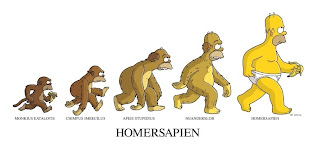Stay Hungry, Stay Foolish
--Steve Jobs
I don’t know if other people also have the same feeling that I do. That is, when I look back one year, I usually find me at that time not being very smart. I made some bad choices, did some stupid things, and had some unmatured ideas. The most frequent example is, I usually laughed at my comments I left for some pictures or people on the blog, on facebook, or on twitter. Sometimes the comment was only a month old. I cannot imagine why I was so naïve to leave such comment that I am so shamed for when I see it today. That is some comment I would never write if I was today’s me at that time. I hope I am not the only person who has this kind of feeling. I hope this can be concluded as growth, isn’t it?
Speaking of “I wish that I knew what I know now when I was younger,” the one thing off the top of my head is I wish I was more prepared for the college. Back to summer time in 2009, I was taking English class. My naïve thought at that time was, English was the most difficult class I would encounter in four-year college study. My burden would be gone after I go through the six weeks of English class. The cause of my childish thought could even be traced back to two years ago, which was 2007, when I was taking ESL (English as Second Language) class. At that time, this is only course that we could enroll. This left me with the thought that English was the most difficult course, after I finish this course, nothing else would be a problem to me. Turns out I was so wrong, one stupid thought led to a nasty result, I did not get very good grades for courses I’ve taken in the past three years. If I had a time machine, I wish I could go back and tell myself, “You should treat every class evenly, think less, do more work!”
Got time machine?



